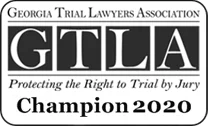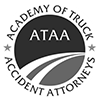Atlanta Truck Accident Lawyers
SETTLING CASES DURING COVID-19: A PANEL DISCUSSION
Case MetrixLawyers in Metro Atlanta turn to Shiver Hamilton Campbell when they need help with a case involving car or truck accidents, catastrophic personal injury, or wrongful death. If you are an attorney with a high-stakes or complicated case that needs to be litigated and tried for a successful result, or if you or your loved one has been injured in a car or truck accident or otherwise by the negligence of others, call Atlanta truck accident lawyers Shiver Hamilton Campbell for the representation you need to get the outcome you deserve.
Help With The Most Serious Accident & Injury Cases
According to the Georgia Department of Public Health (DPH), motor vehicle crashes are the leading cause of injury deaths in the state and the number two cause of hospitalizations and visits to the emergency room. The DPH also notes that traffic deaths in Georgia occur out of proportion to Georgia’s population in the United States. While the state continues efforts to increase seat belt use and child restraints, our office continues to represent accident victims injured by speeding, distracted, drunk, reckless and negligent drivers. Our firm’s experience in auto and truck accident cases allows us to take on the most serious accident and injury cases in metro Atlanta.
Damages in a personal injury claim can include present and future medical expenses, present and future lost income or disability, pain and suffering, and more. In cases involving wrongful death, Georgia law allows surviving family members to sue for the “full value of the life of the deceased” while representatives of the estate can recover other damages such as final medical expenses, funeral and burial expenses, and the conscious pain and suffering experienced by the deceased. Money may be a poor substitute for one’s health or to make up for the loss of a loved one, but it is necessary to help families deal with the harm done to them and the disruption in their lives, and to help them regain a sense of normalcy and the best quality of life they can have. It is also the way our legal system holds negligent actors accountable for their misconduct and helps make society safer for all. By thoroughly preparing every case for trial and going to court when necessary, our lawyers position every client for the best possible result and the maximum recovery available.
Metro Atlanta Truck/Tractor Trailer/18 Wheeler Accidents
Tractor trailers can weigh 20-30 times more than a car and take as much as two football fields distance to come to a complete stop. Trucks are powerful, dangerous vehicles, yet they commonly share the Atlanta roads with automobiles, bicycles, and pedestrians. When a truck is in an accident, the results can be devastating. Moreover, the process of seeking recovery for injuries suffered in a truck accident is usually much more complicated than in the case of a car accident. Trucks are usually part of commercial enterprises, so the list of potentially liable parties could be complex and difficult to ascertain. In addition, trucks are often involved in interstate commerce, so federal transportation laws may enter the equation.
- Bad Weather Truck Accident
- Blind Spot Truck Accident
- Cell Phone Truck Accident
- Drowsy/Fatigued Truck Accident
- Dump Truck Accident
- Fatal Truck Accident
- Federal Trucking Laws & Trucking Industry Regulations
- FedEx & UPS Truck Accident
- Jackknife Truck Accident
- Negligent Truck Maintenance & Manufacturing Defect
- Negligent Truck Driver Accident
- Overweight Truck Accident
- Rollover Truck Accident
- Truck Accident Liability
- Truck Driver Fatigue
- Truck Driver Intoxication
- Truck Side Impact Collision
So, if you are suffering from an injury as the result of a truck accident, it may be a good idea to speak with an experienced Atlanta truck accident attorney who understands all the unique aspects of these cases and could help you obtain the full amount of compensation you deserve.
Common Causes & Injuries Of A Truck Crash
Truck accidents can have a devastating impact on all those involved. While there are different causes for collisions, there are some common Atlanta truck accident causes. If you have been involved in a collision, contact an attorney immediately. An experienced truck accident lawyer could help you seek the compensation you deserve for your pain and suffering. There are a few common causes of truck accidents in Atlanta, however, most of them are related to phone use. The rise in the use of smartphones has had a devastating effect on truck crashes.
While the causes of accidents may differ, the severity of crashes is consistent. Car drivers and their passengers often suffer severe injuries when hit by a tractor-trailer because trucks have more mass, so there is a greater potential for injury due to the enormous amount of energy being transferred onto to the passenger vehicle. A truck can weigh up to 80,000 pounds when loaded. Comparatively, the average passenger car is only 2,000 to 4,000 pounds. The potential for injuries depends largely on whether it is a rear, frontal, or side impact. Though common Atlanta truck accident causes vary, most injuries from truck collisions create spine issues. Orthopedic injuries, shoulder traumas, and head traumas are also common in trucking accidents.
Anti-Cellphone Policies
The federal government makes it illegal for a truck driver or commercial motor vehicle operator to use a smartphone for texting or looking at apps, even at a stop sign. In addition, most trucking companies ban the use of cell phones. Despite this, many trucking companies do not do enough to actually enforce the no-cell-phone policy. Cellphone records indicate that truck drivers are routinely making calls and sending and receiving texts while driving.
Is Atlanta A Contributory Or Comparative Negligence Jurisdiction?
Atlanta is a comparative negligence jurisdiction. This means that if the person bringing the claim forward is also at fault for the crash, they may not receive as much compensation as they would have if the accident was entirely the other driver’s fault. The jury will analyze all the evidence, listen to witness testimonies, listen to the plaintiff and the defendant’s testimonies and use this information to determine the fault of each driver. If the plaintiff was less than fifty percent responsible, the claim can proceed. However, in Atlanta, when there is a truck wreck and the plaintiff is fifty percent or more at fault, they may not recover any compensation.
Proving Negligence In An Atlanta Truck Accident
To recover a monetary award for injuries suffered in an accident in Atlanta, a person must prove that the negligent actions of a person or company involved contributed to the cause of the accident. Those using the public roads in Atlanta owe a duty of care to ensure that their actions do not cause undue risk of harm to others. When they fail to fulfill that duty, they may be legally liable. There are many theories under which a driver, trucking company, manufacturer or other party may be liable for the consequences of a truck accident. Examples of negligent behavior include:
- Improper maintenance of the truck
- Manufacturing defects
- Distracted driving
- Allowing a driver to operate with insufficient training
- Encouraging reckless behavior
- Driving while impaired
- Violating traffic regulations or trucking laws
An attorney could investigate to determine whether these or other factors contributed to the accident. This investigation may include a review of the driver’s credentials and driving history, an examination of the trucking company’s logs and policies, an analysis of police reports and photographs, interviews with accident witnesses, and consultations with accident reconstruction experts to help ascertain precisely what occurred during the accident.
Uninsured/Underinsured Motorist Coverage (UM)
A large truck insurance policy provides at least $1,000,000 of coverage. When a person’s injuries are potentially worth more than that, they should contact a law firm to notify their own insurance company of a possible UM claim. If the value is inaccessible, regardless of the truck company policy, the person can look to their own policy to collect the excess value up to the limits of their UM insurance.
Determining Liability
Liability is proving that someone other than the injured person acted negligently and caused the crash and harm. Determining where the liability falls could prove to be important when calculating Atlanta truck accident damages. There are multiple layers of liability:
- Rules of the road
- Perception-reaction time
- Medical causation
The first layer of liability is the rules of the road that pertain to trucks and truck drivers that go beyond the simple rules that apply to every other driver. These rules address how trucks are loaded, how long they are driven, driver fatigue, driver distraction, braking adjustments, whether the safety equipment on the truck is properly functioning, and analysis of the speed of the truck.
Perception-Reaction Time and Medical Causation
The second layer is an analysis of perception-reaction time, which is when a truck driver should have perceived the hazard and taken evasive action. The same rule applies to the driver of the other vehicle. The third part of liability is medical causation. Truck accident lawyers spend a lot of time reviewing medical records and consulting with medical experts to analyze whether the person’s injuries and limitations were caused by the truck accident or were due to a pre-existing condition or aging.
Settlements In Atlanta Truck Accident Cases
Many personal injury lawsuits end up settling instead of going to a trial by jury. Agreeing on a certain amount of money early and avoiding a legal battle might seem appealing but an injured person could miss out on much-needed funds to pay for medical bills and lost wages as a result of their injury. If you require legal services, consider hiring an attorney to help with settlements in Atlanta truck accident cases. A compassionate truck accident lawyer could advise you on how to navigate the settlement process and avoid falling into the traps of the defendant’s insurance company.
Calculating Settlement Value
The settlement value is calculated by a jury and there is no official formula involved. Insurance companies have tried to reduce this to a formula, which they largely based on what lawyers accept for similar cases. The more lawyers there are who fight for fair settlements, the harder it is for companies to justify lowball offers. People should be aware that if they give the insurance company an indication of what settlement number they will take then the company will view that number as a ceiling for future negotiations.
The injured person should take into account their net recovery, which is what they will they get after they pay attorney’s fees, litigation expenses, and paying all debts related to the settlement. This includes outstanding medical bills or loans that they might have had to take out against the case in order to fund the medical needs or lost income.
Who Decides When to Accept a Settlement?
Ultimately, the client decides whether to settle or take a case to court. However, it is important to have a lawyer who has trial experience because they will be able to determine how much the case is worth. Someone may want to accept a settlement offer if they believe the payment will be sufficient or if there is a significant risk of losing at a trial. Sometimes an attorney may be too timid to handle a trial and might suggest a settlement as a result, which is why it is important to find a firm that has a strong history of trying cases. The choice to reject a settlement and go to trial ultimately comes down to the claimant’s personal risk tolerance and their trust in their attorney.
Receiving the Settlement Money in a Timely Manner
It is typical to expect 30 days between the agreement with the insurance company until the time funds are ready to be dispersed to the client. Someone can ensure they receive their settlement in a timely manner by making sure their medical documentation is thorough and up-to-date. If the claimant is still in pain and needs continuous medical treatment, they should not try to settle early. Therefore, it helps to have a lawyer in the city that is monitoring the truck crash settlement closely. They could have the staff and resources to quickly put the case into a posture for a settlement demand once medical caregivers can project how the injuries will impact the plaintiff’s capabilities in the future.
Lawyers’ Lawyers Who Try Cases and Get Results
We try a lot of cases at Shiver Hamilton Campbell. Of course, we settle cases when it is in our clients’ best interests to do so, but we also routinely take cases all the way through to a jury verdict, with significant results. Through verdicts and settlements we have recovered hundreds of millions of dollars for injury victims, and we continue to serve our clients with the utmost diligence and professionalism.
It is for these reasons that our firm gets brought in by other good lawyers in Atlanta, throughout Georgia, and nationwide, to litigate and try cases with them or for them. When we are not preparing for an upcoming case or in the courtroom advocating for the rights of accident and injury victims, you can find us in the classroom and seminar hall, teaching current and future lawyers about personal injury and wrongful death law and litigation. From the classroom to the courtroom, we stand ready to utilize our skills on behalf of injury victims throughout metro Atlanta.
Contact Our Dedicated Metro Atlanta Truck Accident Lawyers
Call Shiver Hamilton Campbell if you need help with a car accident, truck accident or personal injury case for yourself or a loved one, or if you are an attorney needing help with a difficult case that may require litigation or trial to resolve. We take all personal injury and wrongful death cases on a contingency fee basis; we don’t charge any fees if we don’t win compensation on your behalf. We also have the resources to advance all costs of the litigation and make sure it is handled properly for an optimal result.
If you have been injured in a metro Atlanta car or truck accident, workplace or construction accident, or other incident caused by another party’s negligence or wrongful misconduct, call Shiver Hamilton Campbell at 404-593-0020 for a free consultation to find out how we can help you. Our Atlanta truck accident attorneys take on cases involving the most serious catastrophic injuries or wrongful death, and we fight to secure significant compensation for our clients who were hurt because of another’s negligence or wrongful conduct.




















